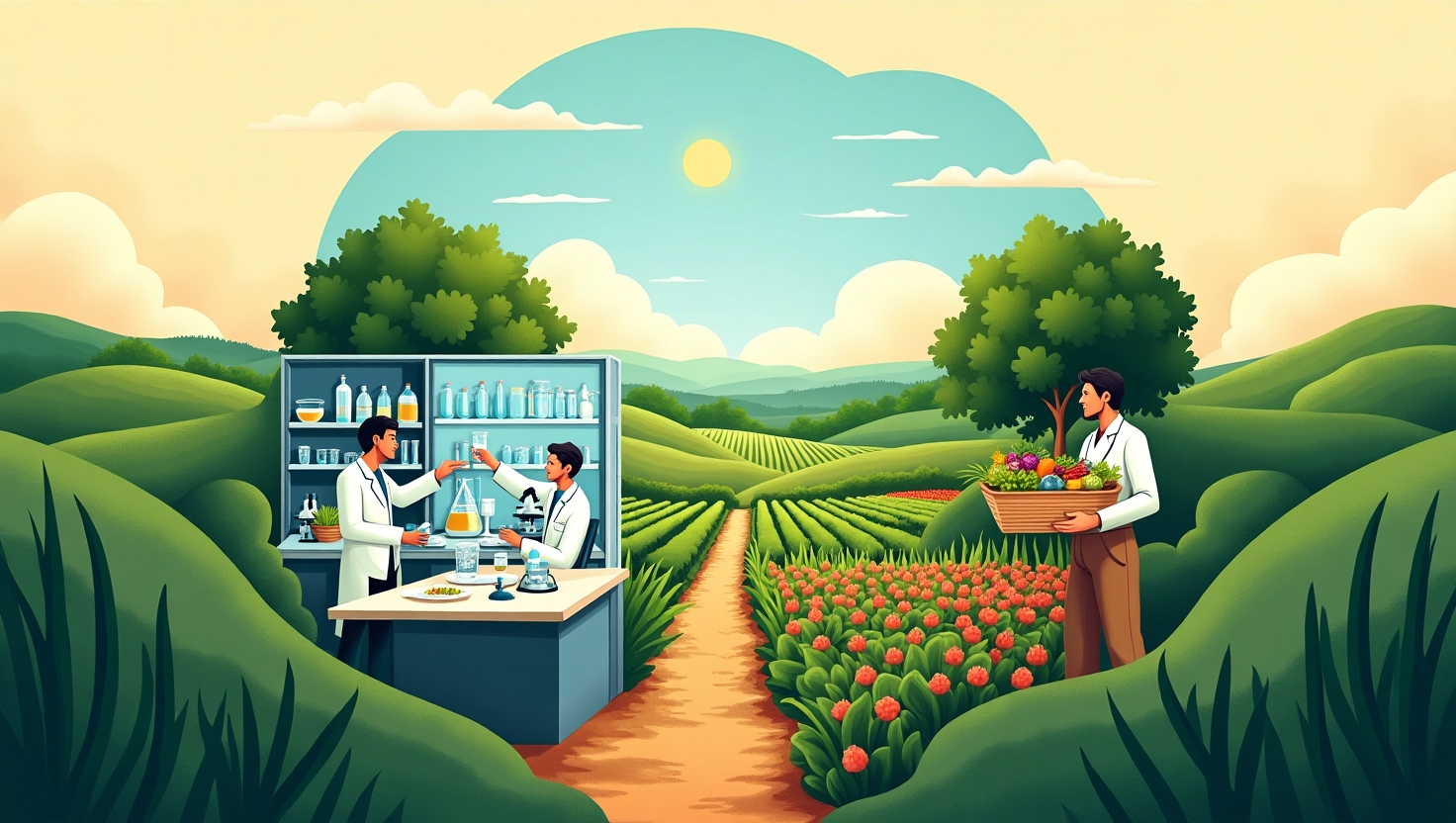The Role of GMOs in Modern Farming: A Balanced Perspective
In today’s rapidly evolving agricultural landscape, genetically modified organisms (GMOs) often spark debate. Some view them as a scientific breakthrough essential for food security, while others approach them with caution. However, beneath the polarized discussions lies a nuanced reality: GMOs play a significant role in modern farming, offering both benefits and challenges worth understanding.

What Are GMOs?
GMOs are crops or organisms whose genetic material has been altered using biotechnology to introduce desirable traits, such as pest resistance, drought tolerance, or improved nutritional content. Unlike traditional breeding, which relies on natural selection over many generations, genetic modification allows for precise changes in a shorter time frame.
The Benefits of GMOs in Agriculture
1. Increased Crop Yields
One of the most compelling advantages of GMOs is their ability to enhance productivity. Crops engineered to resist pests or diseases reduce losses, ensuring more food reaches harvest. For example, Bt cotton, modified to deter bollworms, has significantly increased yields for farmers in India and other regions.
2. Reduced Pesticide Use
Certain GMOs are designed to be resistant to specific pests, decreasing the need for chemical pesticides. This not only lowers production costs for farmers but also reduces environmental contamination and potential harm to non-target species.
3. Climate Resilience
With climate change posing growing threats to agriculture, drought-resistant and heat-tolerant GMO crops offer a lifeline. Varieties like water-efficient maize help farmers maintain productivity even in challenging conditions.
4. Nutritional Enhancements
Biofortified GMOs, such as Golden Rice (enriched with vitamin A), aim to combat malnutrition in vulnerable populations. These innovations highlight how genetic modification can address public health concerns beyond just farming efficiency.
Addressing Common Concerns
Despite their advantages, GMOs raise valid questions. Critics often worry about:
- Long-Term Health Effects: While extensive studies have found GMOs safe for consumption, ongoing research remains important.
- Biodiversity Impact: The dominance of a few GMO crops could reduce genetic diversity, making ecosystems more vulnerable.
- Farmer Dependence on Corporations: Some argue that patent laws around GMO seeds place small farmers at a disadvantage.
These concerns underscore the need for balanced regulation, transparency, and continued scientific evaluation.
A Thoughtful Path Forward
Rather than outright rejection or uncritical acceptance, a measured approach to GMOs may be most beneficial. Supporting independent research, ethical patent practices, and farmer education can help maximize the advantages of biotechnology while minimizing risks.
In the end, GMOs are neither a miracle solution nor an inherent danger—they are tools. Like any tool, their impact depends on how we use them. By fostering informed discussions and responsible policies, we can harness their potential to support sustainable farming and global food security.
What are your thoughts on GMOs in agriculture? Share your perspective in the comments below.

